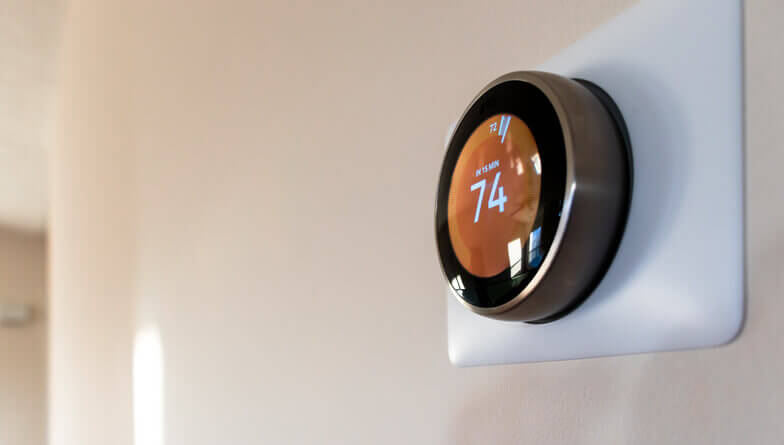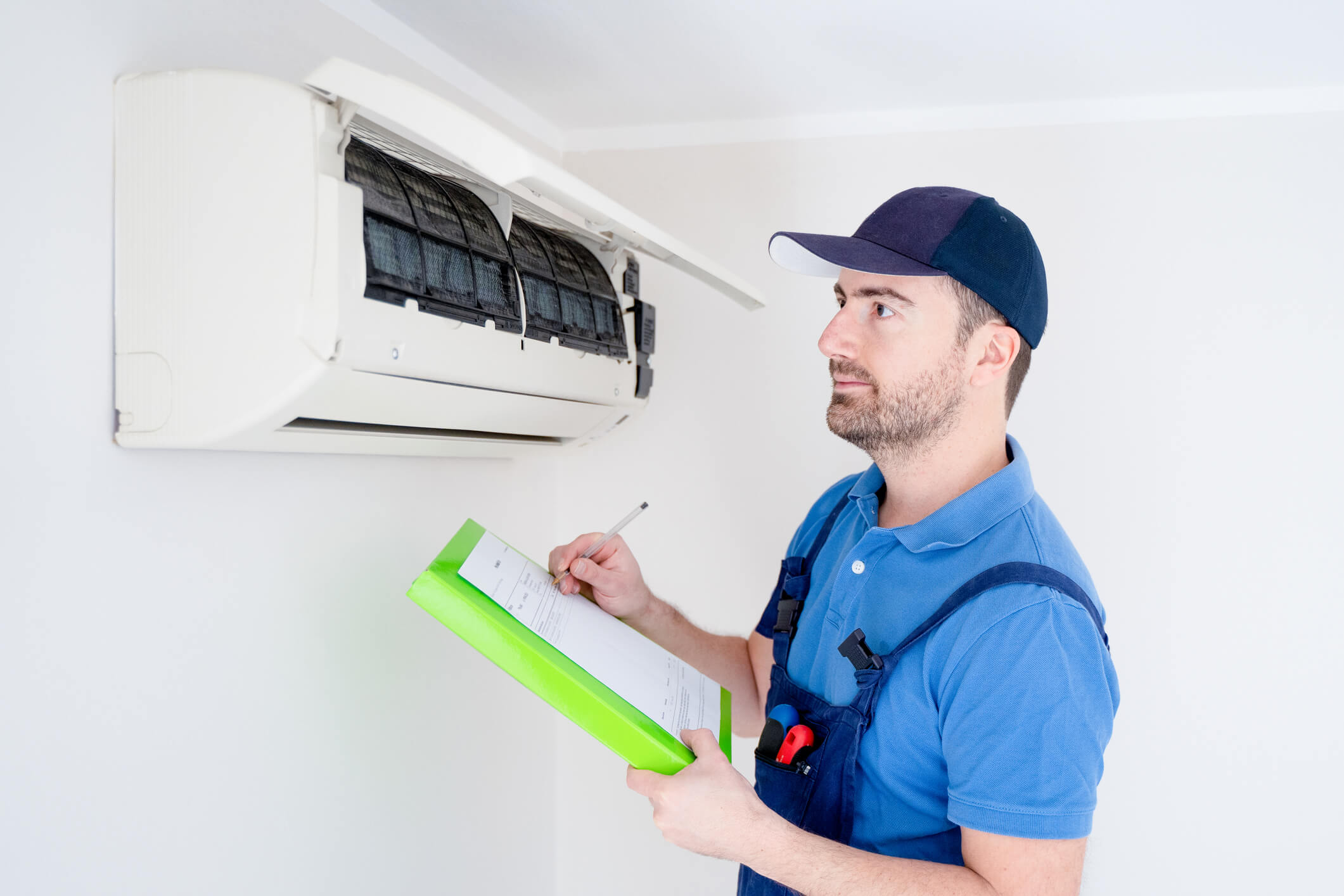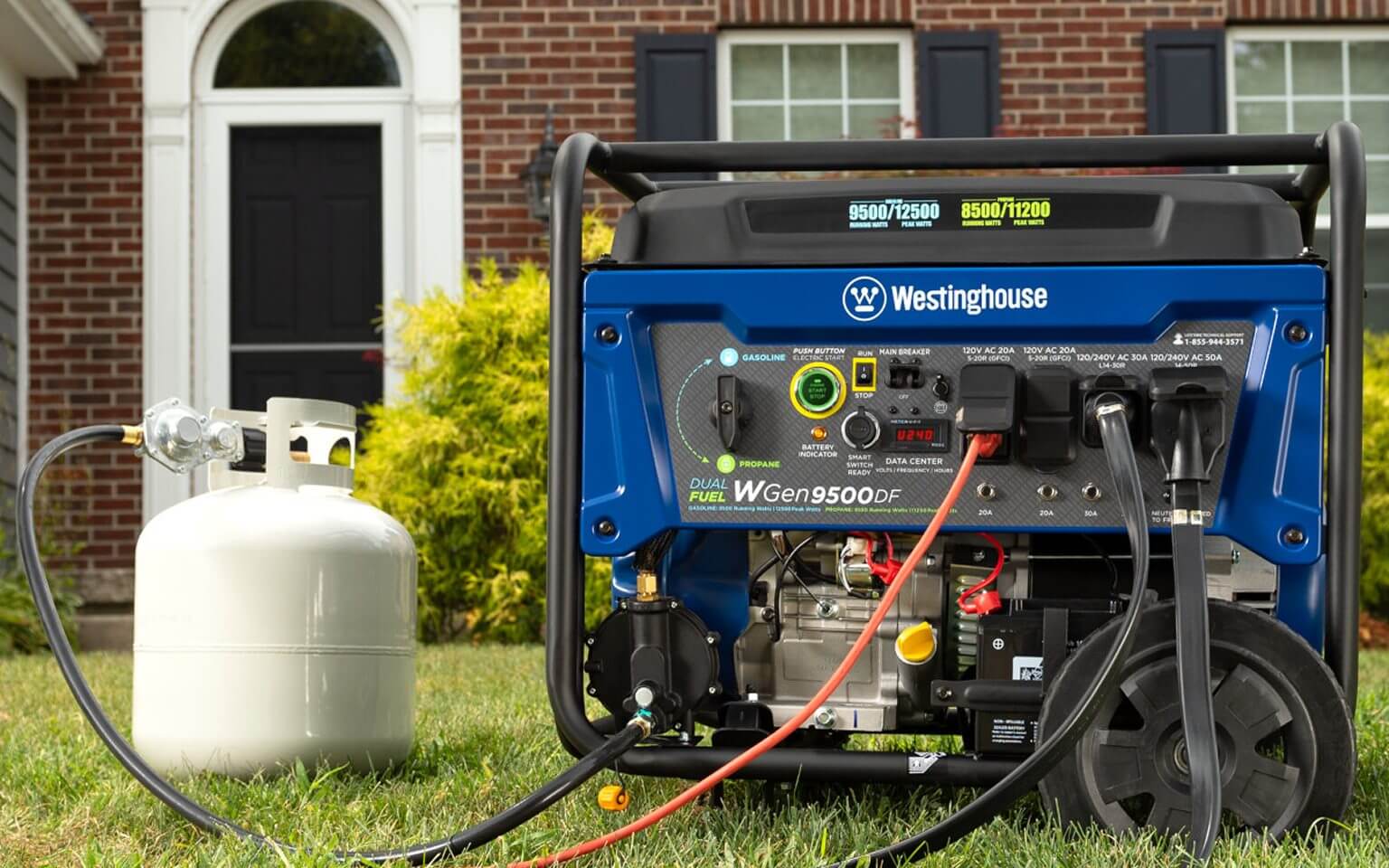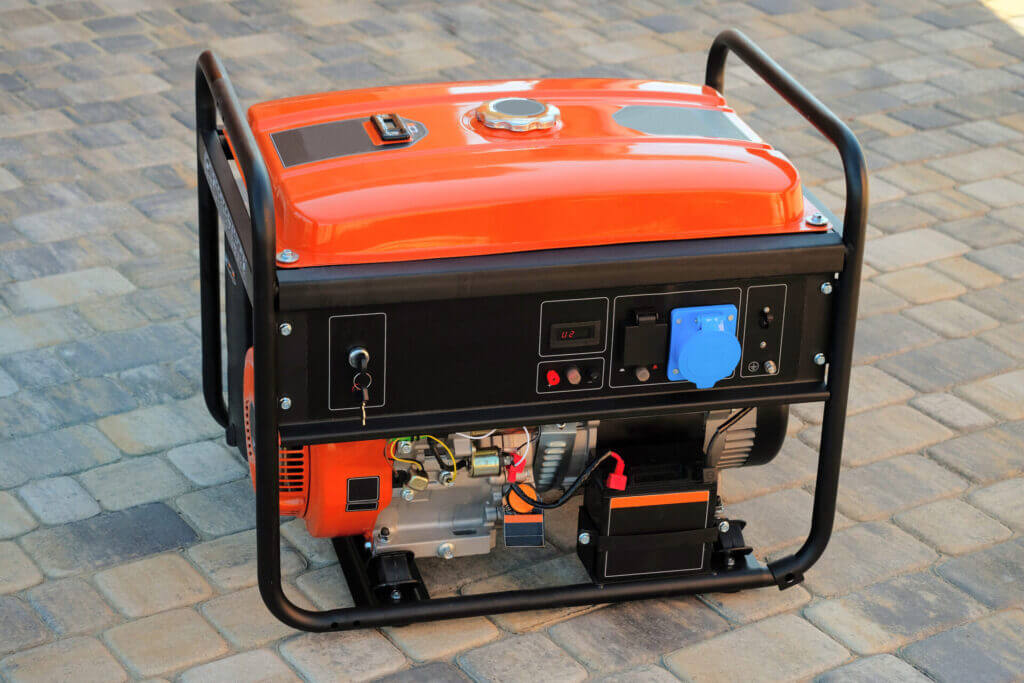Are you doing an HVAC project?
Modernize can pair you with three to four pros in your area, so you can compare options and save time and money.
- What Is a Furnace?
- What Is a Boiler?
- Furnace vs. Boiler: Key Differences
- Cost Comparison: Furnaces vs. Boilers
- Packaged Systems: Furnace-Boiler combos
- Factors to Consider When Choosing Between a Furnace and a Boiler
- Benefits of Upgrading Your Heating System
- Furnaces vs. Boilers — Making the Right Choice for Your Home
- Homeowners Want to Know:
When it comes to heating your home, the choice between a furnace and a boiler is one of the most important decisions you’ll make. Both systems have their own unique advantages, costs, and energy efficiencies. This guide will help you understand the key differences between furnaces and boilers, their benefits and drawbacks, and how to decide which option is best for your home.
What Is a Furnace?
A furnace is a heating system that uses forced air to heat your home. It works by heating air in a central unit and then distributing it through a series of ducts to various rooms. Furnaces can run on various fuel sources, including natural gas, electricity, oil, or propane.
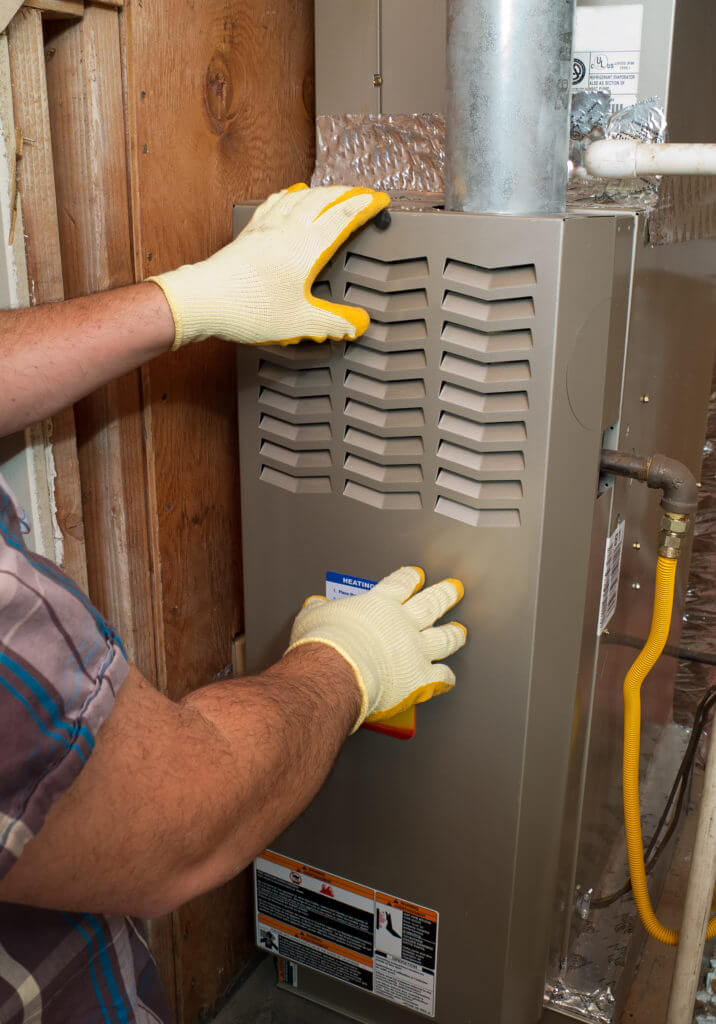
Pros of Furnaces
- Fast Heating: Furnaces heat the air quickly and can efficiently warm up your home in a short amount of time.
- Lower Installation Costs: Generally, furnaces are less expensive to install than boilers, especially in homes with existing ductwork.
- Wider Availability: Because furnaces are more common in the United States, finding replacement parts or service technicians is often easier and more cost-effective.
Cons of Furnaces
- Lower Efficiency: Furnaces tend to be less efficient than boilers, as they lose more heat during the distribution process.
- Reduced Air Quality: Furnaces can circulate dust and allergens throughout the home, potentially affecting indoor air quality.
- Noise: Furnaces can be noisy when the blower is running, especially in older models.
What Is a Boiler?
A boiler heats water and distributes either hot water or steam through pipes to radiators or radiant floor systems. Boilers can be powered by natural gas, oil, electricity, or propane and provide a different type of heat that many find more comfortable.
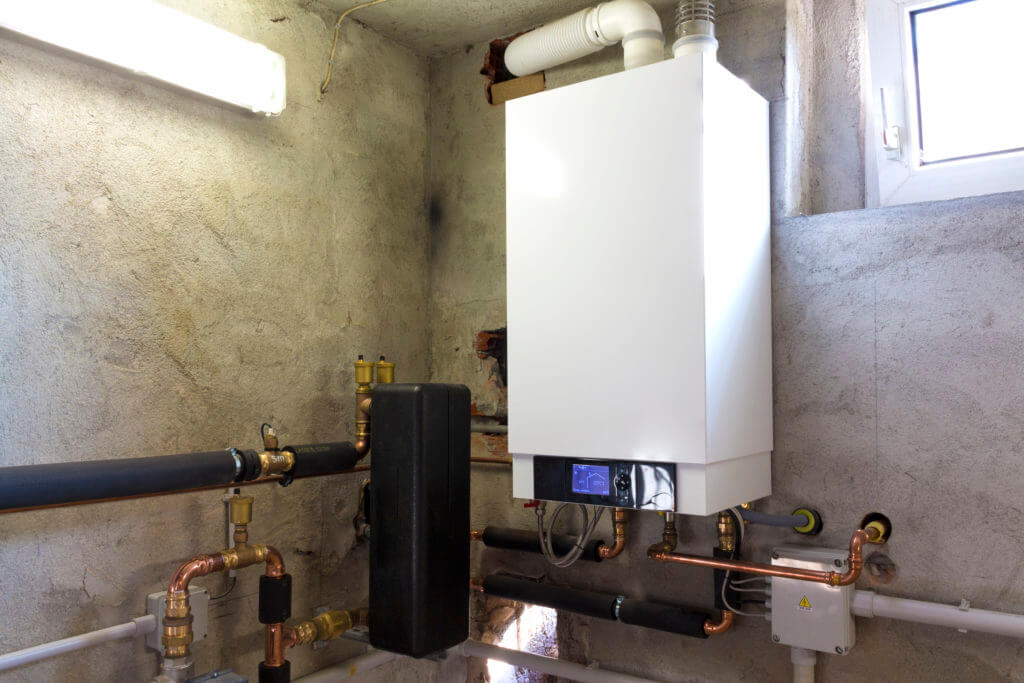
Pros of Boilers
- Higher Efficiency: Boilers typically offer better energy efficiency, as water conducts heat more effectively than air.
- Consistent and Even Heating: Boilers provide a more consistent and even heat, which can be more comfortable in colder climates.
- Improved Air Quality: Since boilers don’t blow air, they don’t spread dust, allergens, or other airborne pollutants throughout your home.
Cons of Boilers
- Higher Initial Costs: Boilers usually have a higher upfront cost and may require extensive plumbing work if your home is not already set up for this system.
- Slower to Heat Up: Boilers take longer to heat a home compared to furnaces, which may be less ideal in climates with rapidly fluctuating temperatures.
- Potential for Water Damage: A boiler system could potentially leak water, leading to water damage if not properly maintained.
Furnace vs. Boiler: Key Differences
1. Heat Distribution
- Furnaces: Use forced air to distribute heat.
- Boilers: Use water or steam to provide radiant heat.
2. Energy Efficiency
- Furnaces: Generally less efficient due to heat loss through ducts.
- Boilers: More efficient, particularly with modern condensing models.
3. Installation and Maintenance Costs
- Furnaces: Lower initial installation cost; may require frequent filter changes and duct cleaning.
- Boilers: Higher upfront cost but generally lower maintenance if properly installed and maintained.
4. Impact on Air Quality
Find the Right Contractor for Your HVAC Project
Whether you’re ready to begin your project now or need some expert advice, our network of contractors are here to help. With a few simple questions, we’ll find the best local professionals for you
- Furnaces: Can spread dust and allergens.
- Boilers: Offer cleaner, dust-free heating.
Cost Comparison: Furnaces vs. Boilers
Furnace Costs
- Installation Cost: Typically ranges from $2,500 to $7,500, depending on the unit size and fuel source.
- Operating Costs: Lower fuel costs in many regions, but can vary based on the efficiency of the unit and local energy prices.
Boiler Costs
- Installation Cost: Usually ranges from $3,500 to $10,000, influenced by the type of boiler, fuel source, and installation complexity.
- Operating Costs: Generally lower due to higher efficiency, but fuel type and system maintenance can affect overall costs.

Packaged Systems: Furnace-Boiler combos
As the name suggests, combination furnace-boilers provide heat and hot water from a single appliance.
High-efficiency combi boilers provide heat through condensing technology — excess heat is recycled to preheat your home’s water. The boiler doesn’t have to work as hard to create hot water, and it’s recycling heat energy that is wasted in less-efficient units. Hot water is delivered instantly and on-demand from a tankless water heater.
These units can be a good fit for homes with limited space for large appliances like hot water storage tanks or attic furnaces, as well as for homeowners seeking ultra-efficient appliances.
Factors to Consider When Choosing Between a Furnace and a Boiler
- Climate: In colder climates, boilers may provide more comfortable and consistent heating, while furnaces may be more suitable for milder regions.
- Existing Infrastructure: If your home already has ductwork, installing a furnace may be more cost-effective. Homes without ducts may benefit from a boiler.
- Allergies or Respiratory Issues: For those sensitive to dust and allergens, boilers offer a cleaner heating solution.
- Budget: Consider both the upfront installation costs and the long-term operating expenses of each system.
Benefits of Upgrading Your Heating System
Upgrading to a newer furnace or boiler model can offer several advantages:
- Increased Energy Efficiency: Modern systems have higher efficiency ratings, reducing energy consumption and lowering utility bills.
- Improved Home Comfort: Newer systems provide more consistent and even heating throughout your home.
- Reduced Maintenance Costs: New heating systems often come with warranties and require fewer repairs.
Furnaces vs. Boilers — Making the Right Choice for Your Home
As we conclude our exploration of furnaces and boilers, it’s clear that both systems offer distinct advantages and suit different homeowner needs. Furnaces, with their extensive distribution networks and affordability, are ideal for homeowners seeking a straightforward and effective heating solution. Boilers, on the other hand, provide efficient, consistent heat and can double as hot water suppliers, making them a great choice for homes requiring a multifaceted heating approach.
Ultimately, your heating system choice should be based on your home’s infrastructure, your personal comfort preferences, and energy efficiency requirements. Whichever system you choose, ensure it aligns with your long-term home heating needs, offering you comfort, efficiency, and reliability for years to come. Remember, consulting with a heating professional can provide valuable insights tailored to your specific situation, helping you make an informed decision between a furnace and a boiler.
Homeowners Want to Know:
Find the Right Contractor for Your HVAC Project
Whether you’re ready to begin your project now or need some expert advice, our network of contractors are here to help. With a few simple questions, we’ll find the best local professionals for you
Reviews from Real Homeowners
Welcome to Homeowner Resources! We are the Modernize blog. Modernize pairs more than 3 million homeowners a year with pre-vetted contractors in their area. This blog started because we believe homeowners should know everything about their homes, from how their HVAC works to which front door colors they might love. On Homeowner Resources, you can find information on every part of your home, right down to how you can negotiate with contractors to get the best price. Here's more about the blog.
Need a contractor? Learn more about how Modernize finds the right pro for you.
